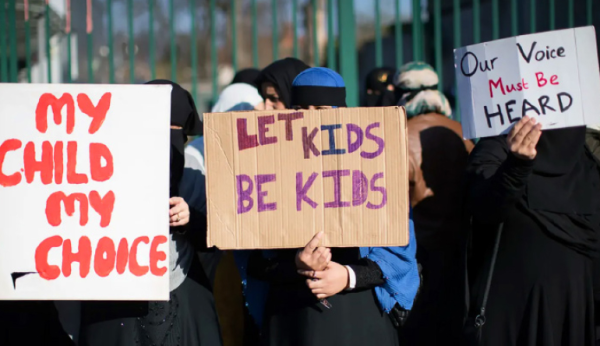Overview of the Two-Year Taliban Resurgence in Afghanistan: The Future of Afghanistan
Overview of the Two-Year Taliban Resurgence in Afghanistan: The Future of Afghanistan
Overview of the Two-Year Taliban Resurgence in Afghanistan: The Future of Afghanistan

August 15, 2023, marks the two-year anniversary of the Taliban's regaining power in Afghanistan. The Taliban are still not acknowledged by any country or international organization. Since the Taliban took power, there have been tremendous changes in the social, economic, and political landscape of Afghanistan, which took Afghanistan to the brink of destruction. Although the current situation has improved somewhat, the Taliban government has not been accepted by Afghans. Instead, they get disillusioned with the Afghans. In this article, we will be given a 2-year overview of the Taliban government, its gains and disappointments, and the future of Afghanistan.
Recognition of the International Community:
Many Western countries, including the United States, shut down their diplomatic offices in Afghanistan after the Taliban took over. They have refused to recognize and establish diplomatic ties with the Taliban government, which calls the country the Islamic Emirate of Afghanistan. The Taliban are now under investigation by the International Criminal Court for alleged abuses of Afghan civilians, including crimes against humanity, carried out since 2003. U.S. and Afghan forces are also being investigated for alleged war crimes.
Great power politics: The US and China
USA
The Taliban regime stands firm as well in its willingness to host terrorist organizations dedicated to spreading insurgency to regional states and that aspire to launch global attacks. And an official ban notwithstanding, the current government is expected to continue its toleration of the production and trafficking of most of the global supply of heroin.
These same policies constitute the core criticism of the Taliban regime by the United States and the international community. In their efforts to influence its behavior, nations have imposed various sanctions and bans, of which the denial of political recognition to the regime is the most prominent.
China
Following the withdrawal of US forces from Afghanistan, China was the first foreign country to pledge emergency humanitarian aid (worth $31 million) to Afghanistan. China’s strategy in Afghanistan is guided by its economic and security interests in Afghanistan. Beijing faces threats from certain groups it has branded as terrorist organizations, which are believed to be operating from Afghan territory. Its primary concerns are how to curb regional instability and eliminate any potential for Afghanistan becoming a safe haven for terrorist groups, especially Uyghur militants in the country.
China’s economic interests in Afghanistan revolve around significant investments in the mining sector—the Mes Aynak copper mine and the oil extraction contract in the Northern provinces of Farvab and Sar-e-Pol. Post-August 2021, China’s main assistance to the Taliban came in the form of humanitarian aid and the donation of COVID-19 vaccines. On the diplomatic front, China has made efforts to rally international support and aid for rebuilding Afghanistan. Correspondingly, Beijing and Pakistan have come together to urge the Western powers to engage the Taliban and provide assistance to the country.
China reacted strongly to the humanitarian and economic crisis in Afghanistan and blamed the US for allowing the security situation to deteriorate by "hastily" withdrawing all its troops from the country and leaving behind a "mess and turmoil" for the Afghan people.
Neighbors: India and Pakistan
India
The security, economic, and humanitarian vacuum left by the withdrawal of American troops has significant implications for India’s interests in Afghanistan. India has always required and worked for a relatively stable Afghanistan free from threats by terrorist groups. The Taliban have sought India’s assistance in rebuilding their country, given New Delhi’s growing geopolitical influence and longstanding interest in accessing Central Asian markets via Afghanistan.
Pakistan
Violence has increased along Afghanistan’s border with Pakistan, which has historically supported the Taliban. The Taliban's return to power has emboldened Tehrik-e-Taliban, a militant group sometimes referred to as the Pakistani Taliban. In late 2022, the group ended a cease-fire with the Pakistani government and launched attacks across the country.
Tensions between Islamabad and Kabul continue to rise. While Pakistan has made efforts to smooth over the growing rift, reopening a key border crossing at Spin Boldak-Chaman, which was closed following cross-border gunfire that killed a Pakistani security guard on Nov. 13.
Clashes along the disputed Afghanistan-Pakistan border have been a recurring problem. Since the Taliban took over Afghanistan in August 2021, the frequency of such clashes has only enlarged. The Afghan Taliban’s military victory in Afghanistan has had an inspirational effect on those who seek to impose sharia law in Pakistan. The Pakistani state has ample reason to be concerned about blowback from the Afghan Taliban across the Durand Line. Pakistan’s practice of supporting jihadist forces is now coming back to haunt it by stirring up religious fervor among a large section of its own population.
Taliban-Iran Relations
Iran has had intricate relations with the Taliban since the 1990s. Iran sought a positive policy toward the Taliban and ushered in communication with this group before the U.S. withdrawal. Because of recent border clashes, mismanagement of the Helmand River between two countries has escalated tensions and created a new set of Challenges for Both countries. As almost 90% of the Helmand River passes through Afghanistan, it is a significant source of water for both sides, supports agriculture and irrigation, protects ecosystems, and minimizes environmental degradation and livelihoods. In order to construct Afghanistan's dams over the Helmand River, Tehran fears that this might abate water flow and hinder irrigation systems. In addition, there have been three major border conflicts between two countries because of Iran’s Public agitation. In essence, Ineffective governance and regulations and a lack of environmental preservation policies are responsible for disputes.
Notwithstanding, Iran and the Taliban have been strategically intertwined on some key issues. Ideological differences, the prolongation of the economy, and Iran want to make Afghanistan a hub by using Afghanistan's geographic position to extend their products and economy in central Asia and with China, to ameliorate security, and to check the ISIS-K threat. In addition, Tehran acquires Afghanistan for the Conservation of Hamun Lake. Over the last few decades, Afghanistan has been ranked among the top five export destinations for Iranian goods, and it will increase by 25 percent in 2022.
The Taliban and ISIS-K Rivalry:
ISIS-K and the Taliban are not only Sunni Islamist extremist groups but also adversaries with different ideologies. They are fighting each other over parts of the country. After regaining power in Afghanistan, the Taliban and ISIS-K have escalated their assault across the country, put pressure on the new government, and raised concerns in the West that they might pose an extreme threat internationally. The principal reason behind the recent attack of ISIS-K against the Taliban was a symbolic target, including Shia Muslim minorities, especially ethnic Hazaras. Hundreds of people were wounded and killed in the bombings in urban areas. ISIS-K invaded the Pakistani and Russian embassies between late 2022 and early 2023. ISIS-K has invaded Afghanistan on 283 occasions, killing at least 670 people and wounding 1200 per assault because they want to form a "Caliphate" throughout the Islamic world.
Law and order of the Taliban:
The Taliban returned to their rule of the late 1990s. They ordered judges to enforce their interpretation of Sharia in November 2022. The Taliban government cannot provide substantial food and economic opportunities for its population. Because of the U.S. sanctions, the Afghan economy has compressed by 30 percent, and more than 90 percent of the population has been suffering from food insecurity, inflation, and climate risks.
The current situation in Afghanistan is somewhat good. The number of primary schools for boys and girls has increased in some areas because of improved security. The Taliban government has also managed to pay its electricity import bill, ensuring power supply even though blackouts sometimes take place. In addition, they managed to gather some budget revenue and boost the mining industry, which assisted in creating public revenue and exports. Moreover, they imposed taxes on the illegal drug industry, like marijuana and opium.
Taliban policy towards women and minorities:
The Taliban imposes strict Sharia law on women. Some actions taken by Taliban shows the tolerance towards the women and some shows their strictness especially towards secular community comparing to their previous regime. To some extend and imposing the specific terms and conditions they allow schooling of the girls. But such scenario is not same all over the country, we have experienced many incidents through media that many of them are not allowing the girls to go to educational institutions. They more tolerable towards the outdoor activities of women comparing to their previous regime but it’s clear that they are not going to follow other Muslim countries rather they are willing to impose strict conditions on women in case of participating outdoor works. Time will say what would happen in future.
The Future of Afghanistan
As Taliban is representing a specific segment of the country; so, other community would not be happy under Taliban regime. Such communal fragmentation may accelerate the lawlessness in the country in near future. Moreover, Countries such as the US and China have stakes in the Afghan conflict, and their political rivalries would exacerbate the situation. Some even argue that it was the involvement of great powers, such as the US and the former USSR that contributed to the long-lasting negative socio-political impacts on the lives of the Afghan people. As the Taliban celebrate the two-year anniversary of their return to power, the international community expects that they will rule justly, uphold human rights, and take preventive measures so that Afghanistan will not again become a safe haven for terrorists. However, judging from the available information, the expectations seem to be far too high. Only the future activities of the Taliban will determine the future of the people of Afghanistan.
The authors of this article are studying at the Department of International Relations, University of Dhaka
 Tamanna Islam & Rashed Rasha Chowdhury
Tamanna Islam & Rashed Rasha Chowdhury 








